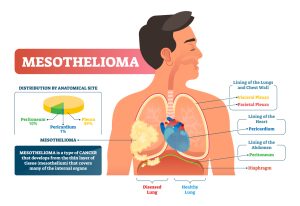According to Christof Höhne and Tatiana Dolenko of leading intellectual property law firm EIP, this introduces limitations to the extent of SPC protection in respect of certain acts carried out in relation to the export of a medicinal product to a non-EU country and to the placing of a medicinal product on the EU market once the SPC has expired. To clarify, Christof and Tatiana explain below.
SPCs and the SPC Manufacturing Waiver
SPCs (Supplementary Protection Certificates) extend patent protection for a pharmaceutical product up to 5 years (with further 6 months for medicines for paediatric use). Background for this extension is that obtaining a marketing authorization for a pharmaceutical product is a lengthy process, diminishing duration of parallel patent protection. SPCs compensate this time-gap and offer the same product-based protection as the basic patent. The so-called SPC Waiver (Regulation 2019/933) creates certain exceptions to this SPC protection as afforded by SPC Regulation (Regulation 469/2009). The following protection carve-outs are established:
- the making of a product, or a medicinal product containing that product, for the purpose of export to third countries; or
- any related act that is strictly necessary for the making, in the Union, referred to in point (i), or for the actual export; or
- the making, no earlier than six months before the expiry of the certificate, of a product or a medicinal product containing that product, for the purpose of storing in the Member State of making, in order to place that product, or a medicinal product containing that product, on the market of the Member States after the expiry of the corresponding certificate, or
- any related act that is strictly necessary for the making, in the Union, referred to in point (iii), or for the actual storing, provided that such related act is carried out no earlier than six months before the expiry of the certificate.
Background to the Waiver
Prior to the SPC-Waiver, pharmaceutical companies, such as generics, could not manufacture to export or stockpile products for day-one entry in the respective Member State (MS) where the SPC was in force. This was recognized by the Commission as a competitive disadvantage to pharmaceutical companies based outside the Union, where a lesser level of protection was in place. In order to promote the European pharmaceutical industry; to ensure competition and enhance day-one availability of generics, the SPC waiver was created.
Entering into force
The SPC Waiver came into force on 1 July 2019. It has effect on SPCs applied on or after 1 July 2019 (directly) and SPCs applied before 1 July 2019 but taking effect after (from 2 July 2022), excluding already existing SPCs, which came in effect before 1 July 2019.
Requirements under the Waiver
To make use of the rights outlined above, the maker(s) must notify the national patent office and the SPC’s holder 3 months prior to commencing manufacture or the first related act. The information must contain the name and address of the maker, the kind of permitted act, the MS of the making or the first related acts, the number of the SPCs in the MS and, additionally for export, the reference number of the marketing authorization or its equivalent when publicly available. The national patent office is entitled to charge a fee for such notifications; the content of the notification will be made public.
- Packaging with the EU logo for export
If the making for purposes of export is of issue, the outer and, where feasible, the immediate packaging must be marked with a black and sufficiently visible logo “EU export”, so as to avoid Union internal distribution before lapse of the SPC.
- Awareness of contracting partners
Any contracting partner of the maker performing the permitted acts must be fully informed and aware of the SPC and the present acts permitted by the SPC-Waiver, in order to avoid any deviation of products for non-permitted purposes.
Issues to resolve and review
Several issues are yet to be clearly defined in jurisprudence: these, inter alia, concern the definition of “maker” and “making” (i.e. can it one be only one, or several companies in different MS or even one in and one outside the Union?). In this context, it will be relevant to note that the Waiver only applies to makers “established in the Union” (who can also have their products made). It is also unclear, if an API can be manufactured outside the EU, before the period of the last 6 months of the SPC’s protection in the MS starts and is then imported into the MS within the period to manufacture a medical product. Further, it will have to be established which related acts qualify as “strictly necessary” for making resp. storing. Apart from definitions, it will have to be monitored in how far the information requirement can trigger anticompetitive behaviour, as the market (and competitors) are informed ahead of time of an intended day-one launch of a generic. This, in turn, could also affect timing of tenders, resp. open house contracts.
Further, under the mechanisms set out, the storing (stockpiling) could also serve to prepare launches “at risk”, i.e. before day-one, if the decision to launch at risk is made after notification.
Not least because of these issues, the Waiver will be reviewed by the EU Commission within the first 5 years and every five years thereafter to evaluate its impacts.
Brexit
Despite current uncertainties, the UK aims at having the SPC waiver enacted in national legislation by way of the European Union (Withdrawal) Act 2018. As the Waiver will no longer work correctly after the UK leaves the EU, the IPO has proposed a statutory instrument (the “UK Waiver”) to fix some provisions of the Waiver. For example, the UK Waiver clarifies and changes the wording to make it applicable in the UK as the home market instead of the EU and its MSs. The open communication for comments on the proposed drafting ended on 9 August 2019. The IPO is now analyzing the feedback as part of the final drafting process and will issue a response document. The UK Waiver will then be put before Parliament for approval.[1]
[1]IPO, Draft legislation: supplementary protection certificate manufacturing waiver in a ‘no deal’ outcome, July 2019; https://www.gov.uk/government/publications/changes-to-spc-and-patent-law-if-uk-leaves-the-eu-without-a-deal/changes-to-spc-and-patent-law-if-the-uk-leaves-the-eu-without-a-deal




















